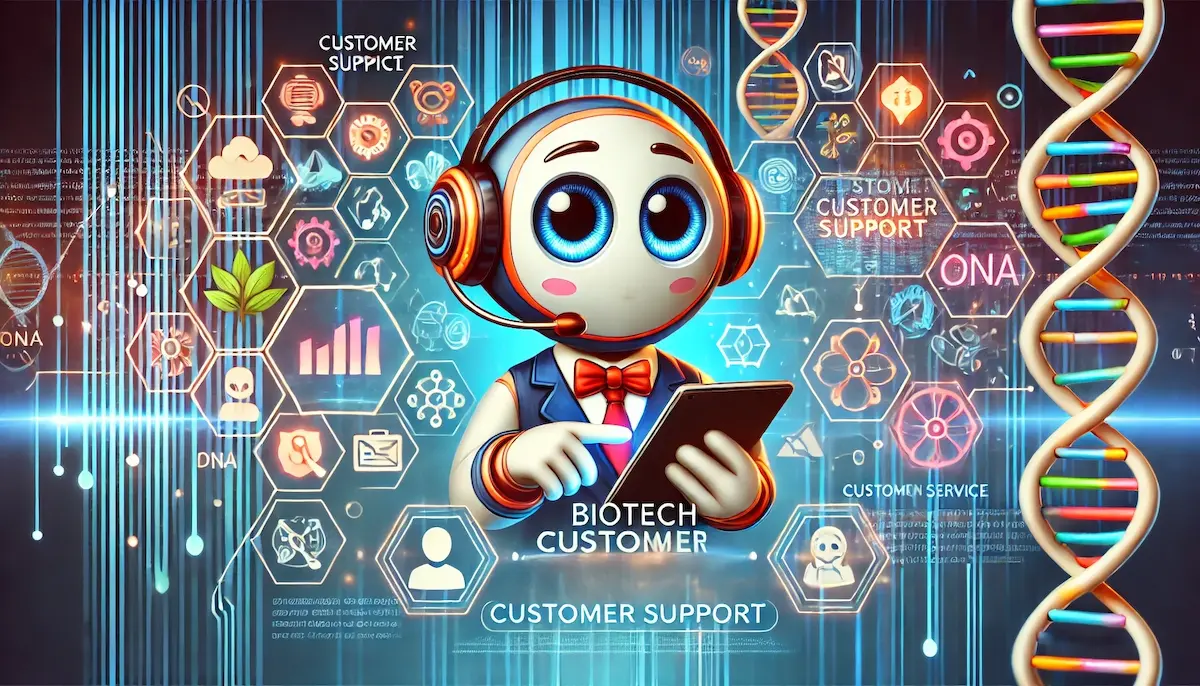Biotech customer support is a vital function within the biotechnology industry, where the products and services offered are often complex, highly technical, and critical to healthcare, research, and other scientific applications. Effective customer support in biotech not only ensures customer satisfaction but also plays a crucial role in maintaining product integrity, compliance, and overall business success.
Understanding Biotech Customer Support
Biotech customer support involves providing assistance to customers who use biotechnology products, which can include pharmaceuticals, medical devices, diagnostic tools, lab equipment, and research services. Support teams help customers with product usage, troubleshooting, technical issues, regulatory inquiries, and more. Given the highly specialized nature of biotech products, customer support professionals must possess both technical expertise and strong communication skills.
The Importance of Biotech Customer Support
- Ensuring Product Success: Effective support helps customers use products correctly, ensuring they achieve the intended results, which is particularly important in fields like healthcare and research where outcomes are critical.
- Building Trust and Loyalty: Providing reliable and knowledgeable support fosters trust and loyalty among customers, which is crucial for long-term business relationships in the biotech industry.
- Maintaining Compliance: Customer support teams play a role in ensuring that products are used in compliance with regulatory requirements, which helps protect both the company and the customer from legal and safety issues.
- Enhancing Customer Experience: A positive customer support experience can differentiate a company in a competitive market, leading to repeat business and positive referrals.
- Feedback Loop for Improvement: Customer support serves as a valuable feedback loop, providing insights into product performance, customer needs, and areas for improvement, which can inform product development and innovation.
Key Components of Biotech Customer Support
- Technical Expertise: Support teams must have a deep understanding of the products they support, including their scientific principles, proper usage, potential issues, and regulatory considerations. Continuous training is essential to keep up with new developments.
- Multichannel Support: Providing support through multiple channels—such as phone, email, live chat, and online knowledge bases—ensures that customers can access help in the way that best suits their needs.
- Regulatory Knowledge: Biotech customer support professionals must be familiar with the regulatory landscape to provide accurate guidance on compliance-related issues, such as proper handling, documentation, and reporting.
- Problem Resolution: Efficient troubleshooting and problem-solving are key to biotech support. This includes diagnosing issues, providing solutions, and following up to ensure problems are fully resolved.
- Proactive Support: Beyond reactive support, proactive customer support involves reaching out to customers to offer assistance, provide training, or alert them to potential issues before they become problems.
- Customer Training and Education: Providing training sessions, webinars, instructional materials, and user guides helps customers understand and effectively use complex biotech products.
- Escalation Procedures: A clear escalation process ensures that more complex issues are promptly addressed by senior technical experts or specialized teams when needed.
Challenges in Biotech Customer Support
- Complex Products: Biotech products are often highly technical and require specialized knowledge to support effectively, making it challenging to find and train qualified support staff.
- Regulatory Compliance: Navigating the regulatory environment adds complexity to customer support, as incorrect guidance can lead to compliance breaches with serious consequences.
- Global Customer Base: Biotech companies often serve a global market, which means support teams must handle inquiries from different regions, each with its own regulatory requirements and language preferences.
- Time Sensitivity: Many biotech products, such as diagnostics and pharmaceuticals, are time-sensitive, meaning that delays in support can have significant implications for customer outcomes.
- Data Privacy: Handling sensitive customer data, particularly in healthcare, requires strict adherence to data privacy regulations, such as GDPR and HIPAA, to ensure customer information is protected.
Best Practices for Effective Biotech Customer Support
- Invest in Training and Education: Continuously train support staff on the latest products, technologies, and regulatory requirements to ensure they can provide accurate and effective assistance.
- Develop Comprehensive Knowledge Bases: Create detailed knowledge bases and FAQs that customers can access for self-service support, reducing the need for direct intervention and improving efficiency.
- Implement Multichannel Support: Offer support through multiple channels to accommodate different customer preferences and ensure accessibility for all users.
- Monitor and Measure Performance: Use metrics such as response time, resolution time, customer satisfaction, and issue recurrence rates to monitor support performance and identify areas for improvement.
- Leverage Customer Feedback: Actively seek feedback from customers to understand their needs, identify pain points, and make informed improvements to both products and support processes.
- Proactively Engage with Customers: Reach out to customers to offer training, updates, and check-ins, especially when introducing new products or updates that may require additional support.
- Ensure Compliance and Security: Establish protocols to ensure that all support activities comply with relevant regulations and data privacy laws, and provide regular training on these topics.
- Tailor Support to Different User Levels: Recognize that customers may have varying levels of expertise, from highly knowledgeable scientists to new users, and tailor support approaches accordingly.
- Maintain Clear Communication: Communicate clearly and concisely, avoiding unnecessary jargon while ensuring that technical information is accurate and easy to understand.
In conclusion, biotech customer support is a critical function that ensures customers can effectively use and benefit from complex biotechnology products. By adhering to best practices and addressing the unique challenges of the biotech industry, companies can build strong, trusting relationships with their customers, drive product success, and maintain compliance in a highly regulated environment.
Blockfine thanks you for reading and hopes you found this article helpful.
